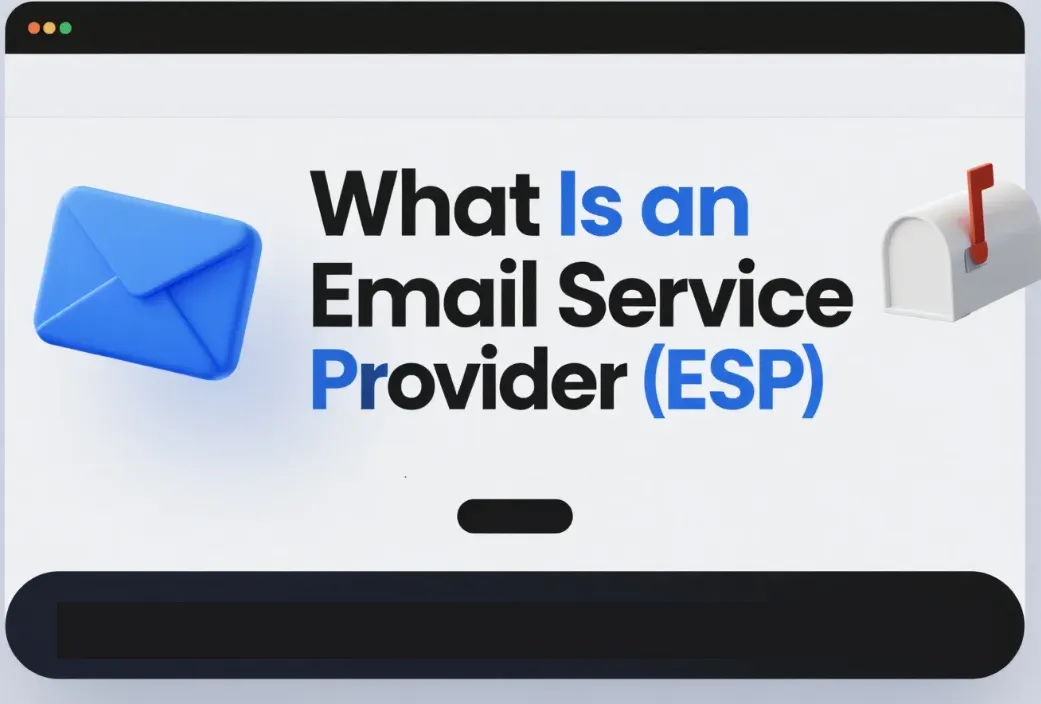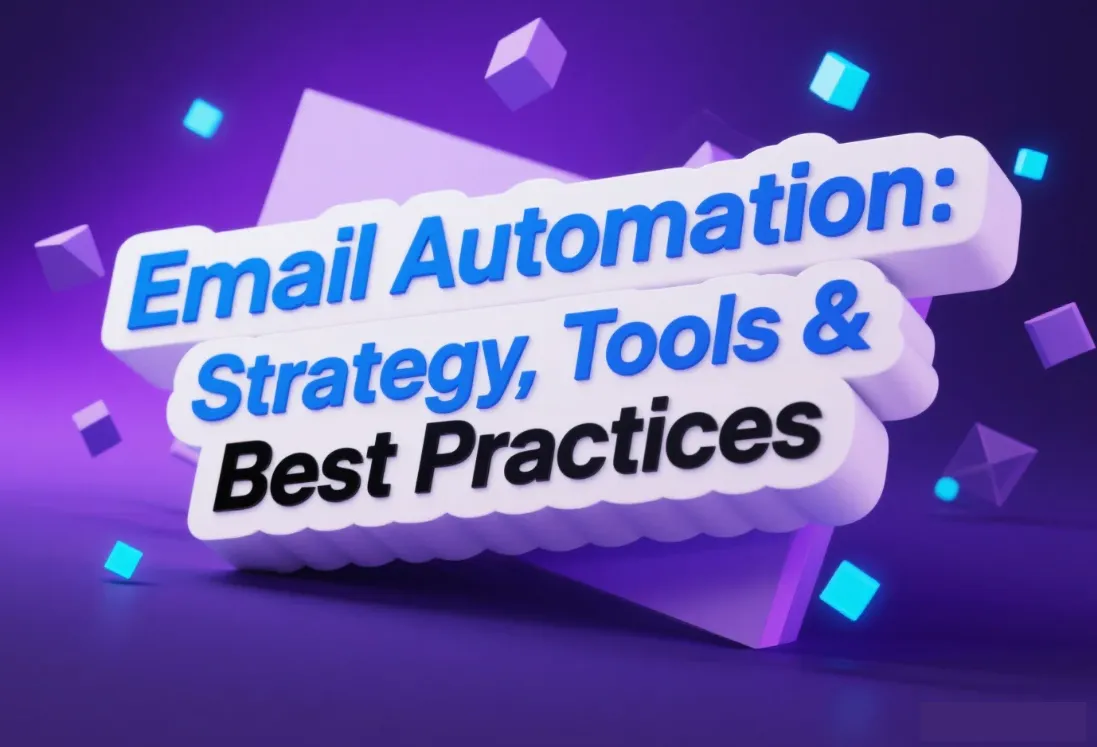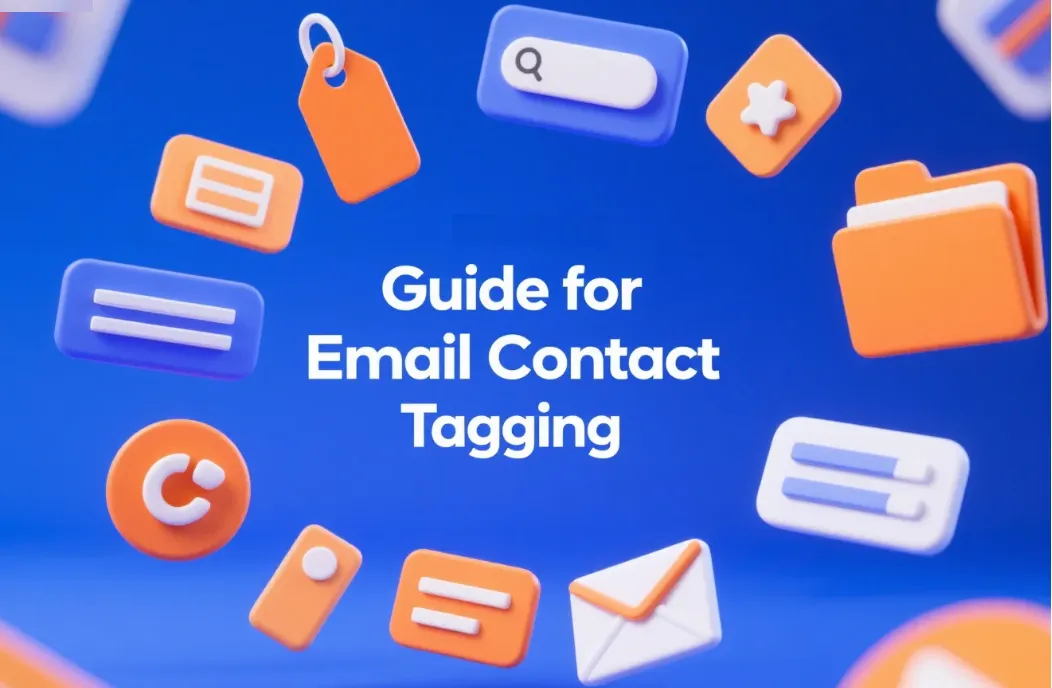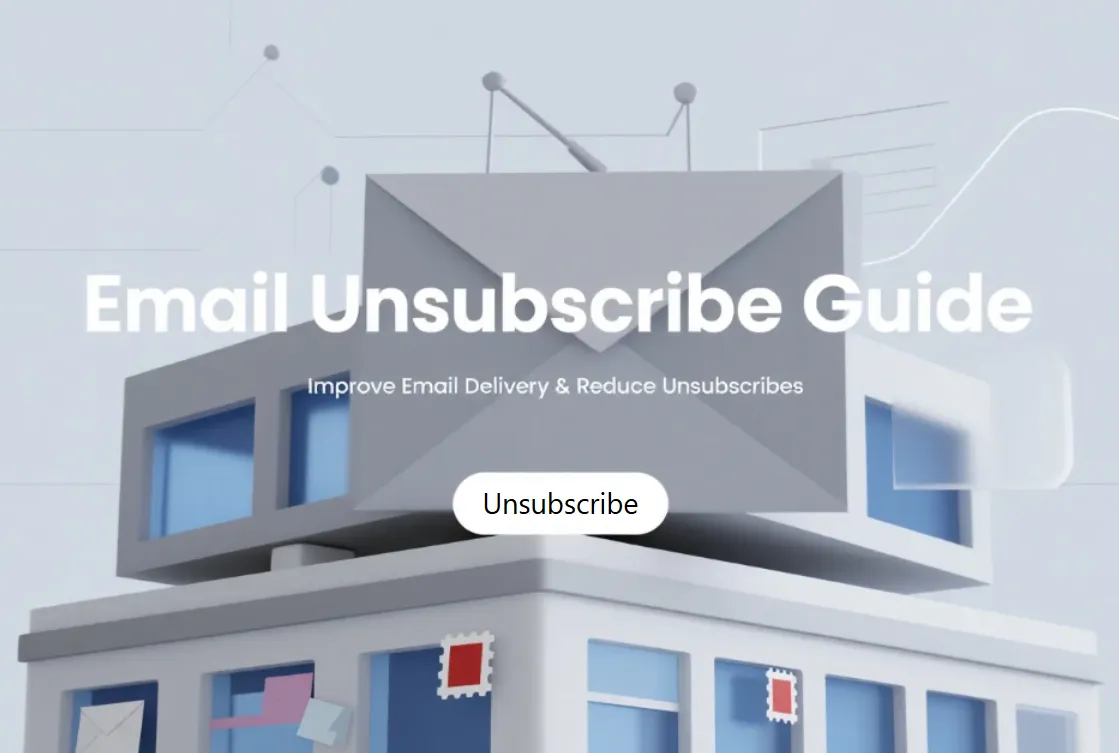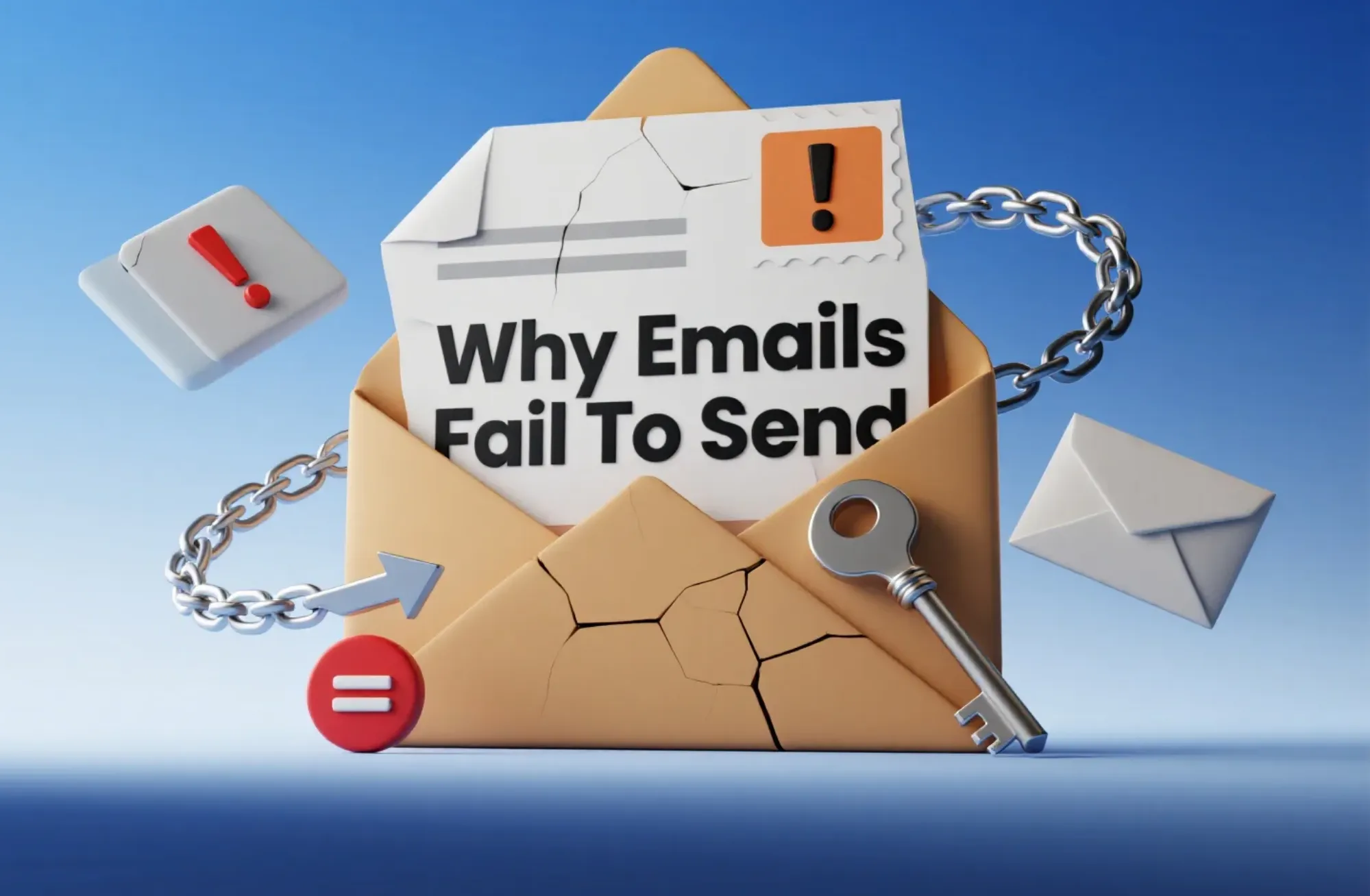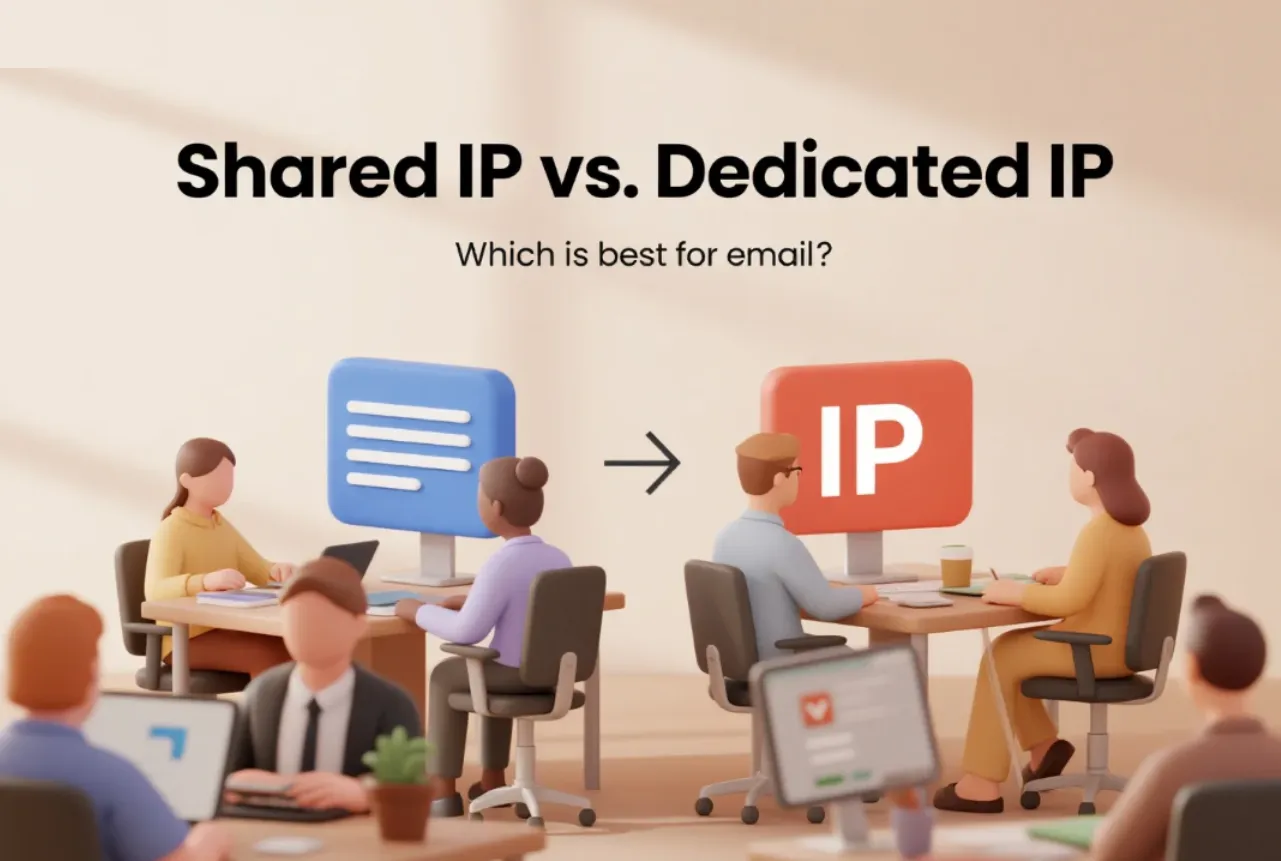Email marketing is still one of the best ways to get results. On average, you can earn $36 for every $1 spent on email marketing, which is higher than other marketing platforms. However, none of that helps if your emails don’t actually reach the inboxes of people. That is where the email delivery rate comes in. This number shows how many of your emails get accepted by the mail servers of the recipients. It is the first step before people even see, open, or click your emails.
A good email delivery rate protects your sender's reputation. It also shows your email list is healthy and makes sure your messages get to real people instead of bouncing back. Your marketing efforts could be quietly failing if your email delivery rate is low. You might be wasting money.
Here, we will explain what email delivery rate is, how to check it, what good benchmarks look like, and strategies for email deliverability so more people see your messages.
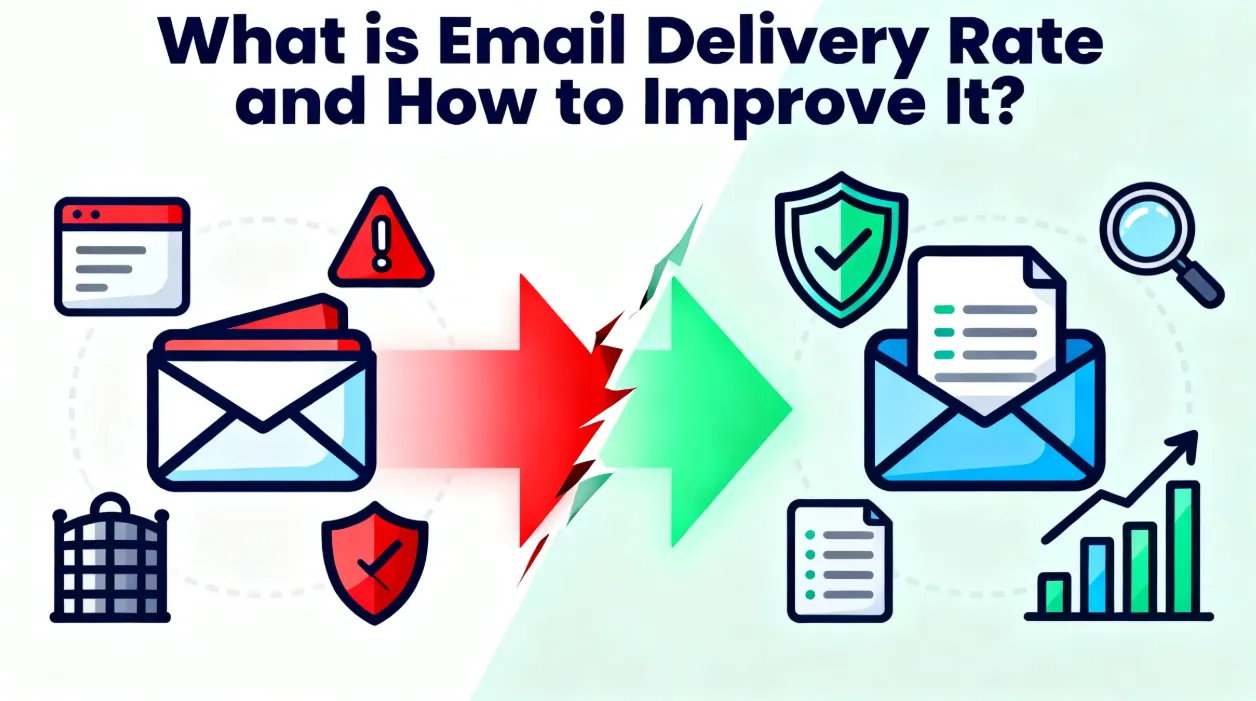
What Is the Email Delivery?
Email delivery means your message was accepted by the mail server of the recipient. It means your email is not bouncing back due to an incorrect address, a blocked IP, or any other reason. A good email delivery rate does not always mean that your emails are going into the inbox.
It shows your email did not bounce back because of a wrong address, a blocked IP, or other technical issues.
According to a 2025 report on email deliverability, 50.9% of people mix up email delivery rate with deliverability. So, let’s understand these terms in email marketing:
- Email Delivery Rate: The percent of emails that reached the mail server of the recipient without bouncing. An email is considered as delivered if it is not bounced back. It is important to keep your bounce rate below 5% for success.
- Email Deliverability:This means how likely those emails are to land in the inbox, not the spam or promotions folder. The higher deliverability means more of your emails have landed in the inbox. Keeping the deliverability above 90% is important for success.
- Open Rate: The percent of delivered emails that people actually open is called the open rate. On the other hand, Click-Through Rate (CTR) is the percentage of delivered emails that people open and click on a link inside.
You can have a high email delivery rate, but still end up in spam folders, which means poor deliverability. Knowing the difference helps you understand how well your emails are really doing.
How to Calculate Your Email Delivery Rate?
It is easy to figure out your email delivery rate with this simple formula:
Delivery Rate = (Emails Delivered ÷ Emails Sent) × 100
For example, you send 10,000 emails and 200 bounce back. It means 9,800 emails were delivered. So, your delivery rate is:
(9,800 ÷ 10,000) × 100 = 98%
It is a good idea to check for issues if your delivery rate is often below 90% . The issues can be messy email lists, a weak sender reputation, or missing email authentication.
Why Is Email Delivery Rate Important?
A high email delivery rate helps your campaigns in three important ways:
- Directly Impacts
Emails can’t be opened, clicked, or lead to sales if they don’t reach the servers. Even a small drop in the email delivery rate can cost businesses a lot. This is especially true when sending emails to big lists.
- Protects Sender Reputation
Email providers like Gmail and Outlook watch how many emails bounce or get marked as spam. A low email delivery rate hurts your reputation. This will make it harder for future emails to reach inboxes.
- Reflects List Health
A low delivery rate often means your list has outdated or fake addresses. Cleaning your list regularly can help you stop bounces and keep your results accurate. In short, your delivery rate is not just a number. It is the base for successful email marketing.
What Is a Good Email Delivery Rate?
A good delivery rate means that your emails are getting to the mail servers of recipients on a regular basis. It helps your messages find their way into the inbox more frequently. The good email delivery rate may, however, vary according to your industry, the nature of emails you use, and the delivery method.
The Industry Benchmark
A good delivery rate is usually between 90% and 98%. This means your email list is healthy. Even more, your content is welcome in inboxes and your relationship with email providers is strong.
On the other hand, if your delivery rate is below 80%, that is a warning sign. It could mean your list has outdated addresses, your sender reputation is weak, or your emails are getting caught in spam filters. You will need to fix these issues quickly to keep your campaigns working well. For instance, only 83.1% of marketing emails actually made it to the inbox on average. It means about 1 in 6 emails did not reach the inbox at all. This sounds alarming and requires your attention.
Marketing Emails vs. Transactional Emails
Not all emails get delivered the same way:
- Marketing emails like promos and newsletters often end up in spam or promotions folders. As a result, fewer people see them. A good delivery rate of marketing emails is usually considered 85% or above.
- Transactional emails like password resets or order confirmations usually have a delivery rate of 95 to 99%. This is because email providers see them as important and expect them.
This difference matters. The delivery rate that is normal for marketing emails might be too low for important messages like receipts or account alerts.
Delivery Rates Vary by Industry
Delivery rates also change depending on the industry. According to a report, average global inbox placement is about 85%. The real estate industry tends to do better, while Finance, telecom, and retail are low-performing industries in this regard. At the same time, entertainment and travel often have more emails marked as spam.
That is why it is smart to compare your email marketing results with others in your industry, not just general numbers.
Why Email Delivery Rate Is Important for Marketers?
Every small drop in delivery affects how many people see your emails. That means fewer opens, clicks, and sales.
For example, going from 97% to 94% delivery on a list of 500,000 means 15,000 fewer people get your message. Over time, that adds up to real missed opportunities.
Avoid Missing Details with Aurora SendCloud!
You can use a tool like Aurora SendCloud to avoid missing important details. It shows you delivery rates, bounce rates, and inbox placement all in one easy dashboard. You can quickly spot and fix problems if your delivery drops this way.
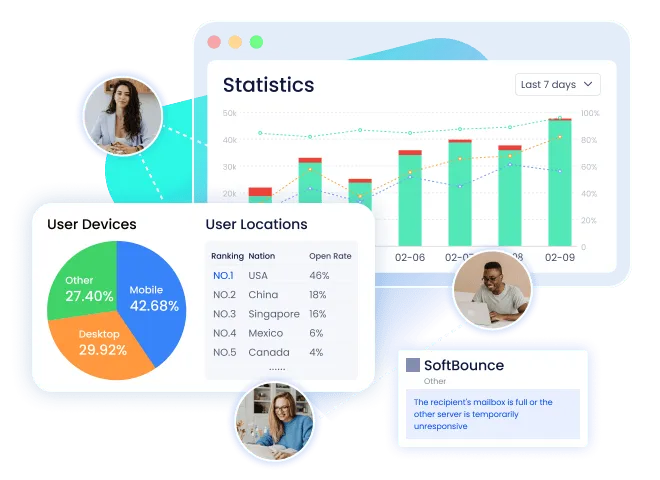
Aurora SendCloud also helps with sorting your email list, verifying your sender identity, and uses AI to check your content. You can do it all without extra manual work. Aurora SendCloud takes the guesswork out of email marketing by bringing these features together. It helps to keep your campaigns running smoothly over time.
Best Practices to Improve Email Delivery Rate
Getting a strong email delivery rate does not just happen. It takes multiple steps from the right setup to smart content and regular checks. Email providers look at both technical details and how your audience interacts with your emails before deciding if your messages go to the inbox or spam.
Here are some simple but powerful email delivery practices to protect your sender reputation and boost delivery:
Authenticate and Set Up Properly
About 58% of email senders prefer authenticating their B2B email accounts.
So, you should also start with a solid technical foundation. Set up SPF, DKIM, and DMARC to prove your emails are really from you and stop others from faking your address. Your emails can get blocked or sent to spam without these. Google says senders who set these up get their emails into inboxes much more often.
It is also a good idea to use a special domain or subdomain just for emails. This keeps your email reputation separate from your main website. It also helps you to manage different types of emails better. Slowly warming up new domains or IP addresses helps to build trust with email providers over time.
Manage Your List Proactively
About 60% of senders clean B2B email lists to improve the email deliverability rate.
A clean email list is key to getting your emails delivered. Use double opt-in to make sure people really want your emails. This helps to avoid fake or wrong addresses. Periodically delete email addresses that bounce back with a hard hit or have not responded to your emails recently. Contacts that are old or inactive may damage reputation and even end up being spam traps.
Optimize Content for Filters and Audience Segment
What you write in your email matters. A quick method of being overlooked is by sending the same email to a mass audience. Rather, categorize your audience into groups based on factors such as job title, issues they deal with, or stages of your selling process.
You are better off sending relevant and personal content to each group so that people will be more likely to reply to your emails. Also, email providers see you as a trusted sender.
These are some of the ways in which you can make your emails look good to email providers:
- Do not use words such as Buy Now or 100% Free in the subject lines and in messages that are spammy.
- Have a nice balance of text and pictures. Too many images with little text can look suspicious.
- Always include a plain-text version of your email along with the fancy HTML version. This helps with accessibility and trust.
Sending useful and interesting content also keeps people engaged. It aids your emails to be received in the inbox more frequently. Therefore, you should do some research about your audience and make your messages specific to their needs and business. It helps your future emails get delivered better.

Sending Strategy: Build Good Engagement
Email providers like it when you send emails in a steady and predictable way. Increase your sending slowly to avoid big spikes that can look suspicious when you start a new campaign or use a new IP address.
Using segmentation and personalization helps a lot. More people open and click your emails when you send emails based on what people are interested in or how they behave.
In fact, segmented emails get 30% more opens.
Always make sure that the unsubscribe link is easy to find. If individuals don’t have the option to do so with ease, they get annoyed and may label your emails as spam. Any amount of spam complaints more than 0.1 percent will damage your delivery rate. Therefore, it is better to make the unsubscribe easy because it actually safeguards your reputation.
Make Data-Driven Decisions with Continuous Monitoring
Monitor crucial numbers like the delivery rate, bounce rate, the number of spam complaints, and the way people interact with your emails.
Free tools like Google Postmaster Tools or Yahoo CFL can help you see how your sender reputation is doing. If your delivery suddenly drops, it is usually a sign you need to fix something fast. So, check what you need to change either with your setup or your content and act accordingly.
Choose a Suitable ESP to Help You Manage the Complex Management Above (Highly Recommended)
Managing email delivery can still be tricky even if you follow all the best tips. That is why having a good Email Service Provider (ESP) is so important.
Aurora SendCloud is a great example of an ESP that makes things easier. It:
- Handles domain setup and keeps your sender reputation strong.
- Offers tools to manage your contact list, including sorting and cleaning it up.
- Uses AI to improve your subject lines and content so your emails get into inboxes more often.
- Connects with tools like Google Postmaster and Yahoo CFL to keep an eye on performance.
Aurora SendCloud cuts down on guesswork and helps marketers keep their email delivery strong and steady. It does so by putting all these features in one place.
Conclusion
Having your emails delivered is not just a technical objective. It is the secret to improved communication, increased engagement, and increased returns from any campaign. Even small drops in delivery can quietly cost you money. In contrast, steady performance builds trust with both email providers and your subscribers.
The best way to keep your delivery strong is by combining a solid technical setup with a good list, content that speaks to your audience, and smart sending habits. Keep an eye on your important metrics. Also, fix any problems quickly to protect your sender's reputation.
Using the right Email Service Provider, like Aurora SendCloud, is important. It helps you to manage all these moving parts in one easy platform. As a result, you can protect your reputation, reach more inboxes, and get the most out of your email marketing.



